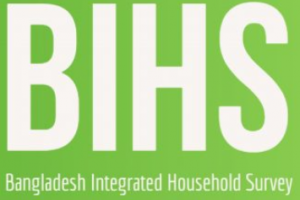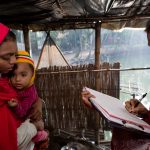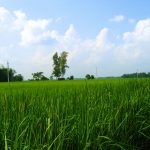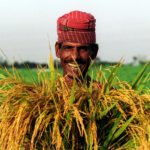International Open Data Day 2020: Crowdsourcing Global Insights from National Data in Bangladesh By Akhter Ahmed and Julie Ghostlaw Introduction Collecting and sharing data and other information publicly is crucial for researchers, policy makers, and development practitioners to identify and navigate issues, crowdsource solutions, and make relevant, timely decisions. To mark International Open Data Day […]
 The IFPRI-PRSSP–designed Bangladesh Integrated Household Survey (BIHS) is the most comprehensive, nationally representative rural household panel survey in the country. The first round survey took place in 2011–12, the second round survey took place in 2015, and the third round survey is projected for 2018. BIHS is the only such survey to collect detailed data on:
The IFPRI-PRSSP–designed Bangladesh Integrated Household Survey (BIHS) is the most comprehensive, nationally representative rural household panel survey in the country. The first round survey took place in 2011–12, the second round survey took place in 2015, and the third round survey is projected for 2018. BIHS is the only such survey to collect detailed data on:
- plot-level agricultural production and practices,
- dietary intake of household members,
- anthropometric measurements of all household members, and
- women’s empowerment via the Women’s Empowerment in Agriculture Index (WEAI).
BIHS samples are statistically representative for rural areas in all seven administrative divisions of the country—Barisal, Chittagong, Dhaka, Khulna, Rajshahi, Rangpur, and Sylhet—as well as the “zone of influence” of USAID's Feed the Future project.
For more information on BIHS, please contact IFPRI Country Representative Dr. Akhter Ahmed.
Government measures to drive paddy prices up: nothing’s working
The government had announced a 20 percent incentive on rice export and a Tk 3,000 crore subsidy for farmers to buy agro tools. It had also doubled duties on rice import and nearly tripled its paddy procurement from farmers. But none of these measures could push paddy prices up in the last three months. Boro […]
Seminar on Changes from Baseline to Endline in the Feed the Future Zone
On July 23, 2019, the Bangladesh Policy Research and Strategy Support Program (PRSSP) and the US Agency for International Development (USAID) co-organized an interactive review of changes of selected indicators from 2011/12 baseline to 2018/19 endline for the Feed the Future (FTF) Zone of Influence, using data from two rounds of PRSSP’s Bangladesh Integrated Household […]
Proper policy needed for ensuring fair paddy price
The government should create a balance between the paddy price at the farm and the retail level to ensure that the farmers get fair price of their produce and the consumers can also buy rice at affordable prices. “Lower paddy price causes sufferings to the farmers and at the same time, high rice price also […]
A Catch-22 in Safety Net Targeting in Bangladesh (BLOG)
A Bureaucratic Catch-22: Study in Bangladesh Shows How Safety Nets Can Overlook the Poorest Around the world, governments and development partners make hard choices on how to invest their limited resources to help the needy. But in a country like Bangladesh, where almost one fourth of the population of 165 million lives below the poverty line, […]




